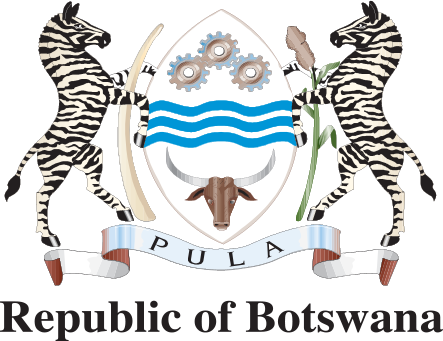About COVID-19
Coronavirus disease (COVID-19) is an infectious disease caused by a newly discovered coronavirus. The virus that causes COVID-19 is a novel coronavirus that was first identified during an investigation into an outbreak in Wuhan, China in 2019. Since then, the virus has spread to more than 100 countries, including neighbouring countries in the southern part of Africa.
The coronaviruses typically cause respiratory symptoms and most infected people will develop mild to severe symptoms. Common symptoms include:
- fever
- tiredness
- dry cough.
Other symptoms include:
- shortness of breath
- aches and pains
- sore throat
- and very few people will report diarrhoea, nausea or a runny nose.
- The virus is spread mainly from person-to-person through
- Close contact with one another (less than 1- 2 metres apart).
- Respiratory droplets produced when an infected person coughs or sneezes
- Spread from contact with contaminated surfaces or objects
- Touching a surface or object that has the virus on it and then touching their own mouth, nose, or possibly their eyes
Everyone is at risk of contracting the virus as long as they have had contact with the infected person or have travelled to affected places and countries where there is transmission.
Health care workers, people who have underlying medical conditions and those over 60 years old have a higher risk of developing severe disease and death.
Groups at higher risk
- older adults
- people with HIV
- people with asthma
- pregnant women
To prevent infection and to slow transmission of COVID-19, do the following:
- Wash your hands regularly with soap and clean water, or clean them with alcohol-based hand rub/sanitizer.
- Cover your mouth and nose when coughing or sneezing (use a tissue or flexed elbow). Then throw the tissue in the bin and immediately wash your hands
- Maintain at least 2 metres distance between you and other people
- Avoid touching your face.
- Stay home if you feel unwell.
- Refrain from smoking and other activities that weaken the lungs.
- Practice physical distancing by avoiding unnecessary travel and staying away from large groups of people.
- Clean and disinfect frequently touched objects and surfaces
Currently there is no known cure, however treatment is supportive for example providing oxygen for patients with shortness of breath or treating a fever or treating symptoms. Most people infected with the COVID-19 virus will experience mild to moderate respiratory illness and recover without requiring special treatment.
The country is adopted the following as prevention and control strategies since February 2020;
- Public education through the use of mass media and other forms of education
- Screening at all points of entry for early detection, diagnosis and treatment.
- Advised self-quarantine for suspected cases as well as rapid specimen collection for testing
- Isolation for suspected cases or symptomatic individuals following screening at designated health facilities followed by contact tracing instituted to ensure that the virus is does not spread.
- Social distancing where the public is advised to take measures to reduce contact in malls, shops, work, gyms, places of worship etc.
- Community lock down where training institutions and other places that gather large number of people are closed or there is restricted movement. This includes restricting and preventing travel within or outside the country.
- Stay at home
- Monitor your symptoms
- Get rest and stay hydrated
- Call the help-line – (16649 or 363 2273/2756/7) - to get appropriate advice
- Cover your nose and mouth with a tissue when coughing or sneezing.
- Regularly wash hands with clean soap and water or use an alcohol based sanitizer
- Practice self-isolation; avoid contact to protect others in the household
- Avoid sharing personal items
- Regularly clean and disinfect all surface that are touched such as counters, table tops and door knobs with bleach solutions
